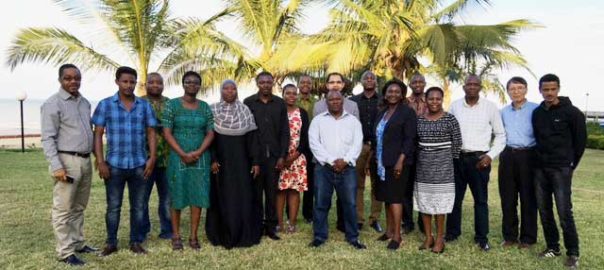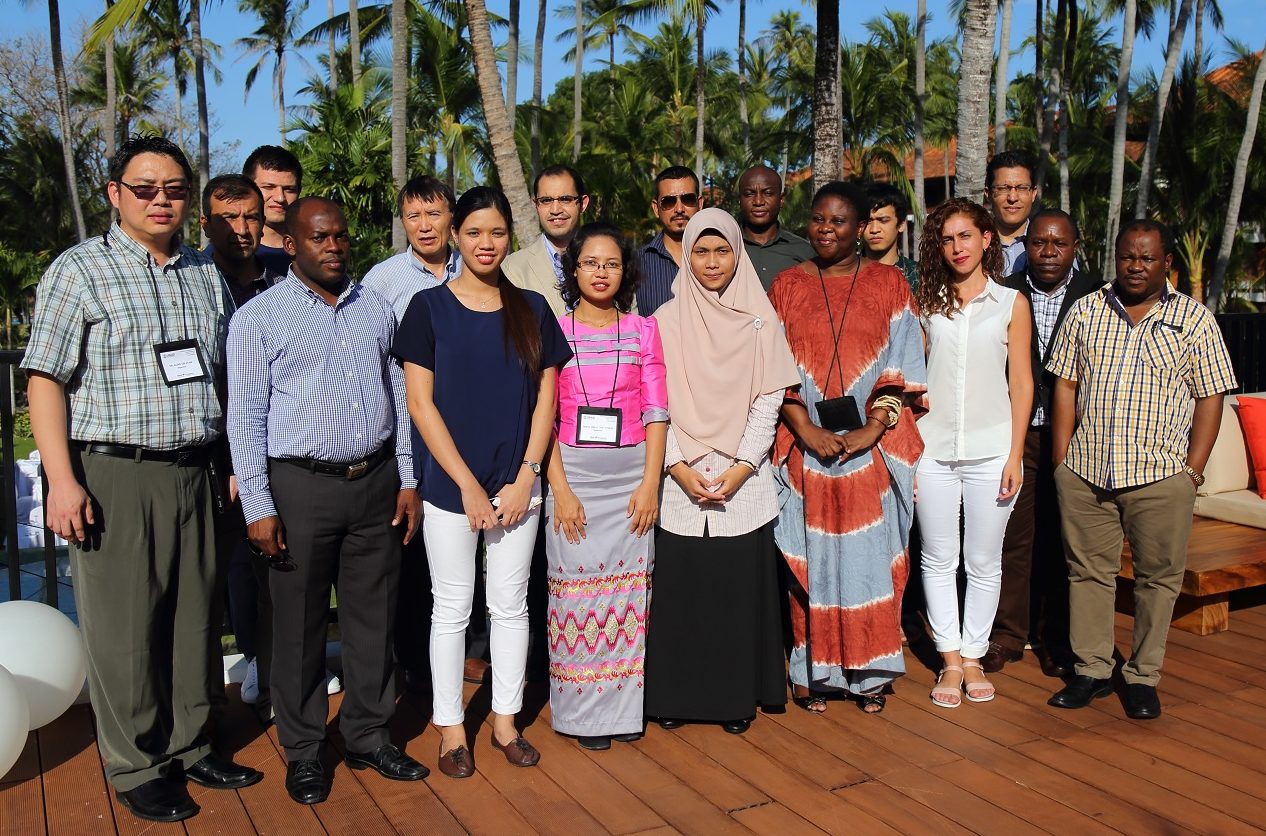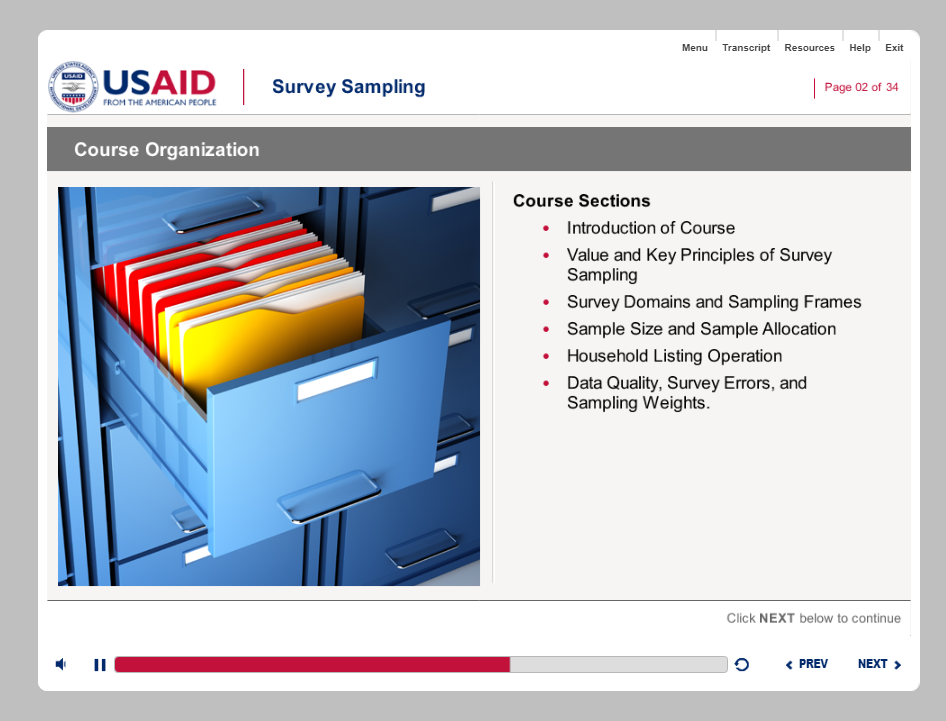Reflections on The DHS Program’s Regional Sampling Workshop

In some developing countries, the knowledge and methods for complex survey sampling can be capacity gaps in national statistical offices. In many cases, survey samples are prepared by statisticians who have limited academic and field experience in sampling. For this reason, The DHS Program has developed a Regional Sampling Workshop to provide a two-week face-to-face training on survey sampling. The target audience includes statisticians from African and Asian national statistical offices or implementing agencies who have been or will be involved in designing the sample for their country’s DHS survey. The DHS Program has facilitated two such workshops in Tanzania in 2016 and Indonesia in 2017.
 In July 2017, my colleague Dr. Ruilin Ren and I facilitated the Regional Sampling Workshop in Bali, Indonesia. Fifteen participants from nine countries first completed pre-work online in preparation for attending the 12-day face-to-face workshop. The workshop focused on each step involved in survey sampling including sampling frame preparation, sample selection procedure, sample size determination, sample allocation, household listing, and weight calculation. Each day, participants were exposed to innovative blended learning methods, such as videos, demonstrations, exercises, and lectures.
In July 2017, my colleague Dr. Ruilin Ren and I facilitated the Regional Sampling Workshop in Bali, Indonesia. Fifteen participants from nine countries first completed pre-work online in preparation for attending the 12-day face-to-face workshop. The workshop focused on each step involved in survey sampling including sampling frame preparation, sample selection procedure, sample size determination, sample allocation, household listing, and weight calculation. Each day, participants were exposed to innovative blended learning methods, such as videos, demonstrations, exercises, and lectures.
 In addition to the sampling topics, participants were introduced to the adult learning principles training package designed by DHS Senior Advisor for Capacity Strengthening, Abibata Handley. Through participatory sessions, participants learned how to apply effective training methods and techniques to teach complex sampling concepts. Participants worked together in groups to develop and facilitate a 60-minute “teachback” for one of the sampling topics and received feedback from the instructors. I was impressed by how creative all the groups were in facilitating their assigned sessions. Upon completion of the workshop, participants were ready to go back to their home institutions and teach sampling topics in an interesting way.
In addition to the sampling topics, participants were introduced to the adult learning principles training package designed by DHS Senior Advisor for Capacity Strengthening, Abibata Handley. Through participatory sessions, participants learned how to apply effective training methods and techniques to teach complex sampling concepts. Participants worked together in groups to develop and facilitate a 60-minute “teachback” for one of the sampling topics and received feedback from the instructors. I was impressed by how creative all the groups were in facilitating their assigned sessions. Upon completion of the workshop, participants were ready to go back to their home institutions and teach sampling topics in an interesting way.
Many programs provide sampling training, but what makes The DHS Program’s capacity strengthening and training workshop unique is its combined use of traditional training approaches along with cutting-edge eLearning tools. This combination provides participants with practical skills that can be applied right away to support their country’s ongoing surveys. Participants receive the entire training package so they can, in turn, replicate the sampling training in their own country. The training package includes a Facilitator’s Guide and Participant’s Guide, presentations, and tools with detailed instructions on how to facilitate the activities, class exercises, and group projects.
In May 2017, I traveled to Yaoundé, Cameroon to provide technical assistance in the sample design for the 2017-18 Cameroon Demographic and Health Survey. During the trip, I worked with Romain Wounang, a Survey Statistician at the National Institute of Statistics (INS) of Cameroon, who attended the first Regional Sampling Workshop in Tanzania in 2016. In addition to his background and experience in survey statistics, the new skills that Romain acquired from the workshop allowed for a smooth collaboration in designing the sample for the Cameroon DHS. This experience was a success, as I witnessed a participant perform and apply the sampling techniques covered in the workshop to the sample design of the Cameroon DHS.
Another workshop participant, John Bore from Kenya, excelled and was approached to be a co-facilitator for a Tanzania-specific sampling workshop. When asked to help with the training, without hesitation John accepted and lead several sessions. As he kicked off the workshop, John introduced himself:
“Good morning everyone. My name is John Bore. I am a Senior Statistician from the Kenya National Bureau of Statistics. Eight months ago, I myself was sitting in your seats. I was a participant at the first-ever DHS Program Regional Workshop on Sampling and Listing that was held in Dar es Salaam, Tanzania in July 2016. Today, I am here as a co-facilitator. It’s an honor to be co-facilitating this workshop along with our DHS sampling expert, Dr. Ruilin Ren.”
To date, The DHS Program has trained 31 samplers and consultants in regional workshops. Although the sampling workshop is just one activity in a long process to prepare professional sampling statisticians, I believe conducting such trainings is a win-win strategy for the participants, implementing agencies, and for The DHS Program.
Photo captions: 1) Participants from the 2016 Regional Sampling Workshop in Dar es Salaam, Tanzania © 2016, ICF; 2) Participants from the 2017 Regional Sampling Workshop in Bali, Indonesia © 2017, ICF; 3) Survey sampling online pre-work course sections; and 4) John Bore, co-facilitator at the Tanzania-specific sampling workshop in Dar es Salaam, Tanzania. © 2016, ICF



A very good post.
It is so much worth it as the DHS programme keeps on building capacity to local statistician.
As a statistician with only 5 years experiance in the field the biggest area of the problem i face in any project i get involved with is from sample size calculations to sampling and weighting.
The statisticians who got lucky to get the training should be proud and use that knowledge effectively and never let it go in vain instead they sgould use all the resources they have to build capacity to other statisticians in-need.